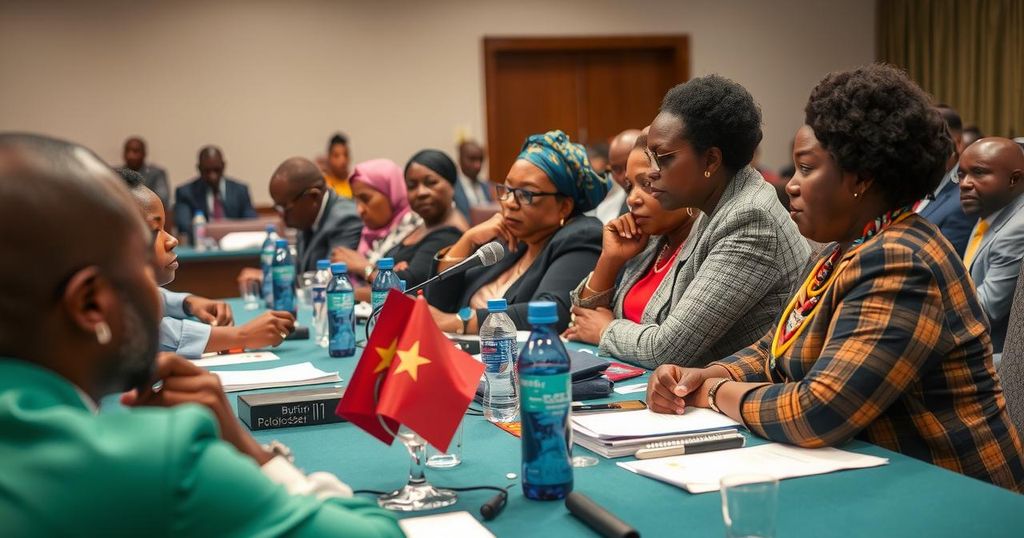Botswana faces a critical challenge regarding women’s representation in parliament as the upcoming 2024 elections near. Currently, women represent only 10.85% of candidates and have seen a decrease in parliamentary seats, highlighting a significant disparity despite their majority among eligible voters. Political parties must take effective actions to improve women’s representation, ensuring democracy is more inclusive and reflective of the electorate’s composition.
The political landscape in Botswana poses a pressing question: “bomme ba kae?” or “where are the women?” This inquiry has become increasingly vital as the nation approaches its 2024 general elections. Current statistics reveal a concerning trend; only 28 women are among the 258 candidates for parliament, amounting to a mere 10.85%, with only three women securing parliamentary seats. This figure markedly decreased from 5.26% in the previous elections. Despite women constituting 54% of eligible voters, their representation in political decision-making remains severely limited, underscoring the urgent need for Botswana’s political parties to reevaluate their internal practices and candidate selections in pursuit of greater inclusivity and representation. At the forefront of this initiative should be a commitment to reforming the structures within political parties to facilitate the selection of qualified female candidates.
Historically, the issue of gender representation in politics has garnered attention, particularly since the Southern African Development Community’s introduction of a gender checklist in 2002, aimed at fostering gender equality during elections. Various other countries have since amended their constitutions to promote the inclusion of women in political decision-making processes, establishing gender parity as a fundamental principle in governance. As Botswana progresses towards its elections, it is imperative that political parties take decisive action to address the underrepresentation of women in their ranks, thereby enhancing democratic practices and ensuring that the voices of all constituents are adequately heard and respected.
Botswana’s political climate has long grappled with the underrepresentation of women, leading to increased scrutiny as elections draw near. With a majority of eligible voters being women, the stark contrast between their electoral participation and actual representation in parliament raises critical questions about the effectiveness and inclusivity of political processes. Historical initiatives, such as the Southern African Development Community’s gender checklist, underscore ongoing efforts to rectify gender imbalances in the political sphere. The issue of women’s representation reflects broader societal attitudes towards gender equality and underscores the need for political reform that resonates with the demographic realities of the electorate.
In conclusion, the need for enhanced women’s representation in Botswana’s parliament is urgent, especially as the country approaches the 2024 general elections. With women comprising a significant majority of eligible voters yet holding only a fraction of parliamentary seats, there is a clear discrepancy that must be addressed. Political parties hold a pivotal role in enacting change by ensuring more inclusive candidate selection processes. By championing the cause of gender equality, Botswana can move towards a more representative and democratic governance structure.
Original Source: constitutionnet.org






